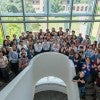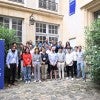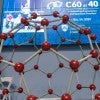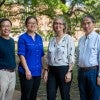
Study shows light can reshape atom-thin semiconductors for next-generation optical devices
Rice researchers studying a class of atom-thin semiconductors known as transition metal dichalcogenides have discovered that light can trigger a physical shift in their atomic lattice, creating a tunable way to adjust the materials’ behavior and properties.













